Botswana
Background
While Botswana’s economy is one of the strongest in the region, this strength disguises significant socio-economic challenges and a critical lack of diversification. Botswana’s unemployment rate is 23% (2024, World Bank), and youth unemployment is a startling 38% (UNDP, National Human Development Report, Botswana, 2025); Botswana is also considered one of the most unequal societies in the world.
Socio-Economic Profile
According to the national Multidimensional Poverty Index, Botswana has a national poverty rate of 21%, which is disproportionately higher in rural areas (2021). The majority of rural, remote districts also have the highest concentrations of San communities. The Index report states ‘deprivation levels are higher in remote rural areas where most basic services are not available’. In Botswana “remote areas/settlements” are euphemisms for San communities.
Historically, Botswana does not differentiate, nor recognize, ethnic groups: all citizens are considered indigenous with the same rights. Though official statistics do not record ethnicity, various researchers estimate that Botswana hosts the world’s largest number of San, over 64,000, including many different groups. In Botswana, KhoiSan languages include Ju|’hoansi (!Kung), Naro, ||Gana and | Gui, Tsua, Tsi’xa, !Xu, !Xoo, Bugakwe, ||Anikhwe, Shua and Tciretcire, reflecting incredible diversity.
While small numbers of San live in most Districts in Botswana, larger populations are found in Remote Area Communities (RACs) in Ghanzi, Charles Hill, Boteti, Kweneng and North-West Districts.
Despite Botswana’s middle-income status, many marginalized communities live in severe poverty and lack sustainable development support. Generally, where the largest concentrations of San live, there is a notable lack of critical services including adequate health care and quality education services. Education standards in these areas are generally lower than elsewhere and have higher school dropout rates. Infrastructure is generally in poor condition, and economic opportunities are often extremely limited. The various San ethnic groups in Botswana are among the most marginalized and poorest in Southern Africa.
Palms for Life Investment
Since 2020, Palms for Life (PFL) has invested significantly in socio-economic opportunities for San groups in Botswana.
This includes:
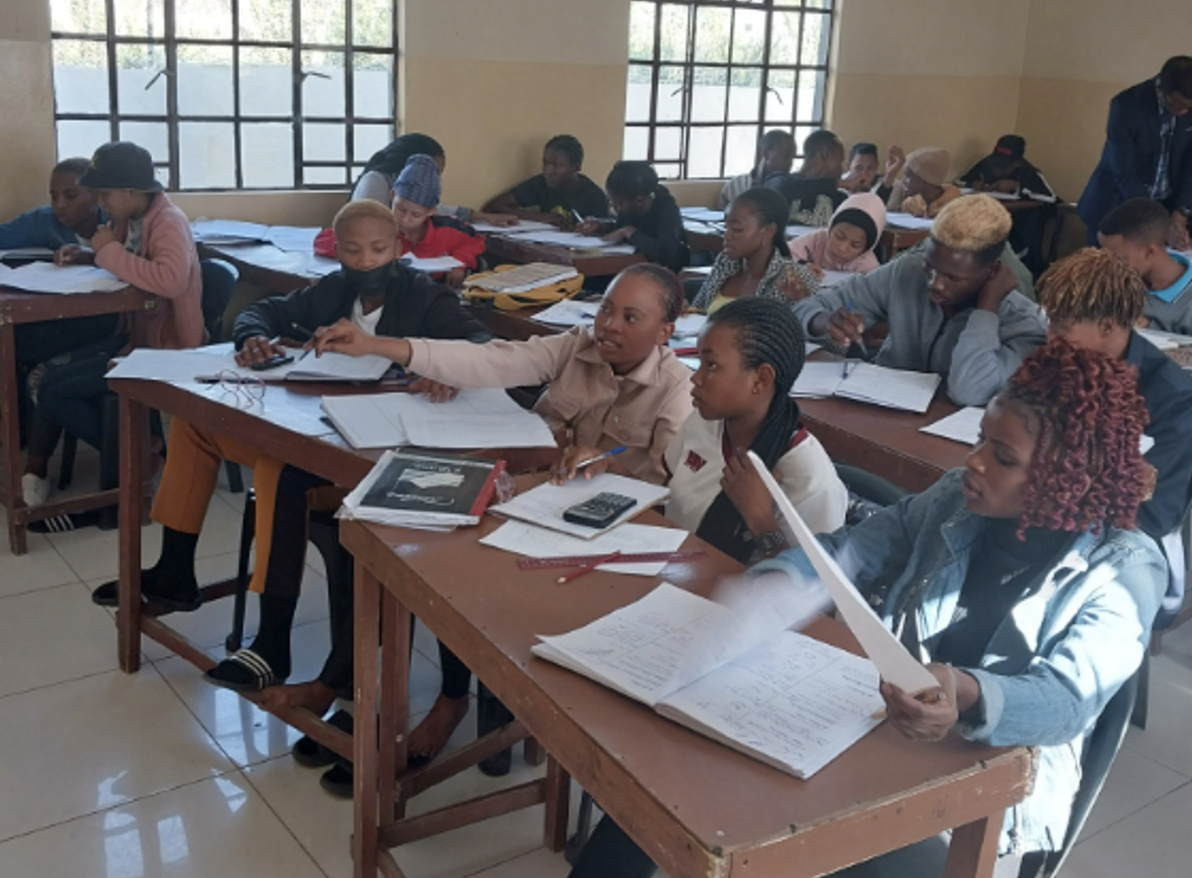
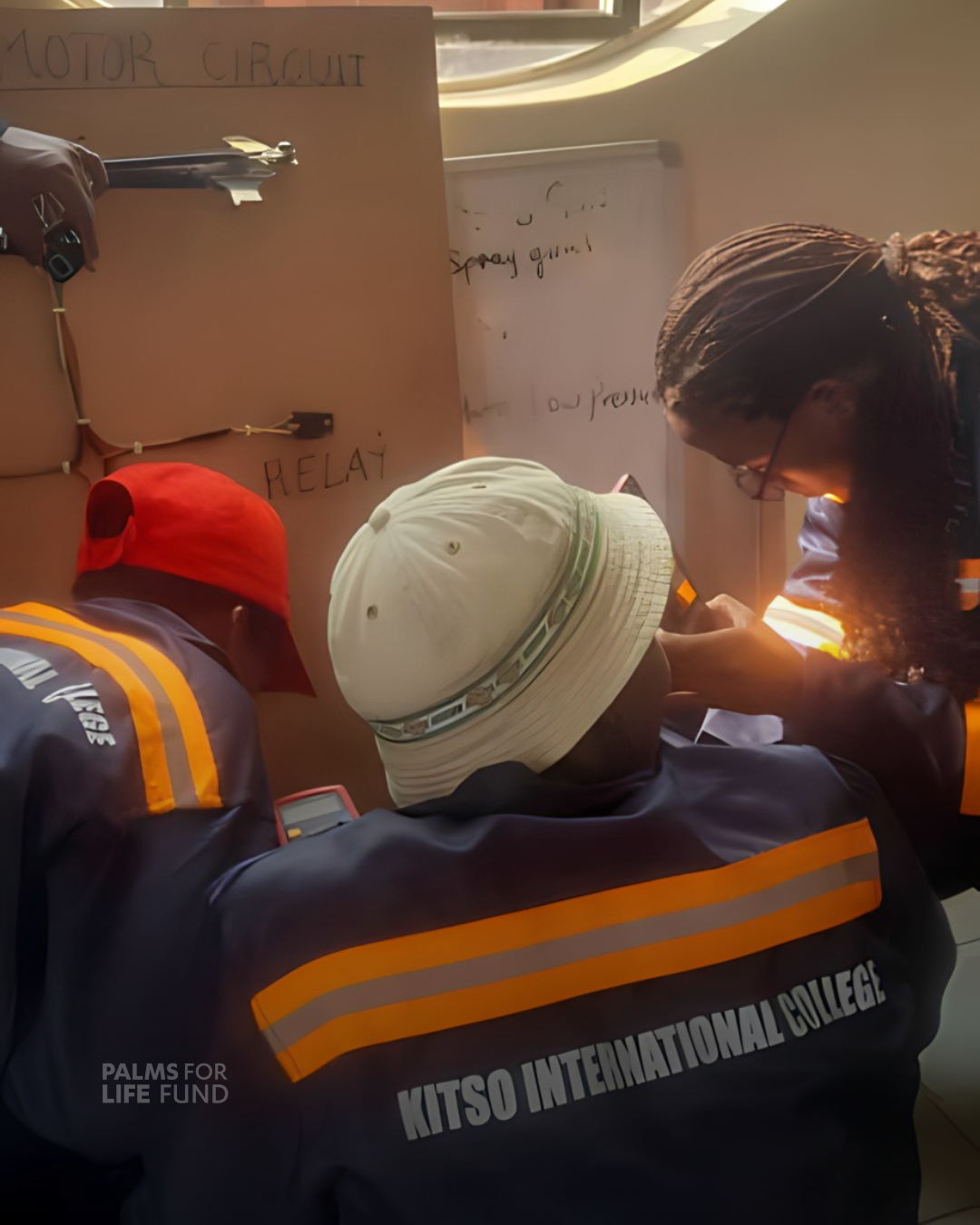
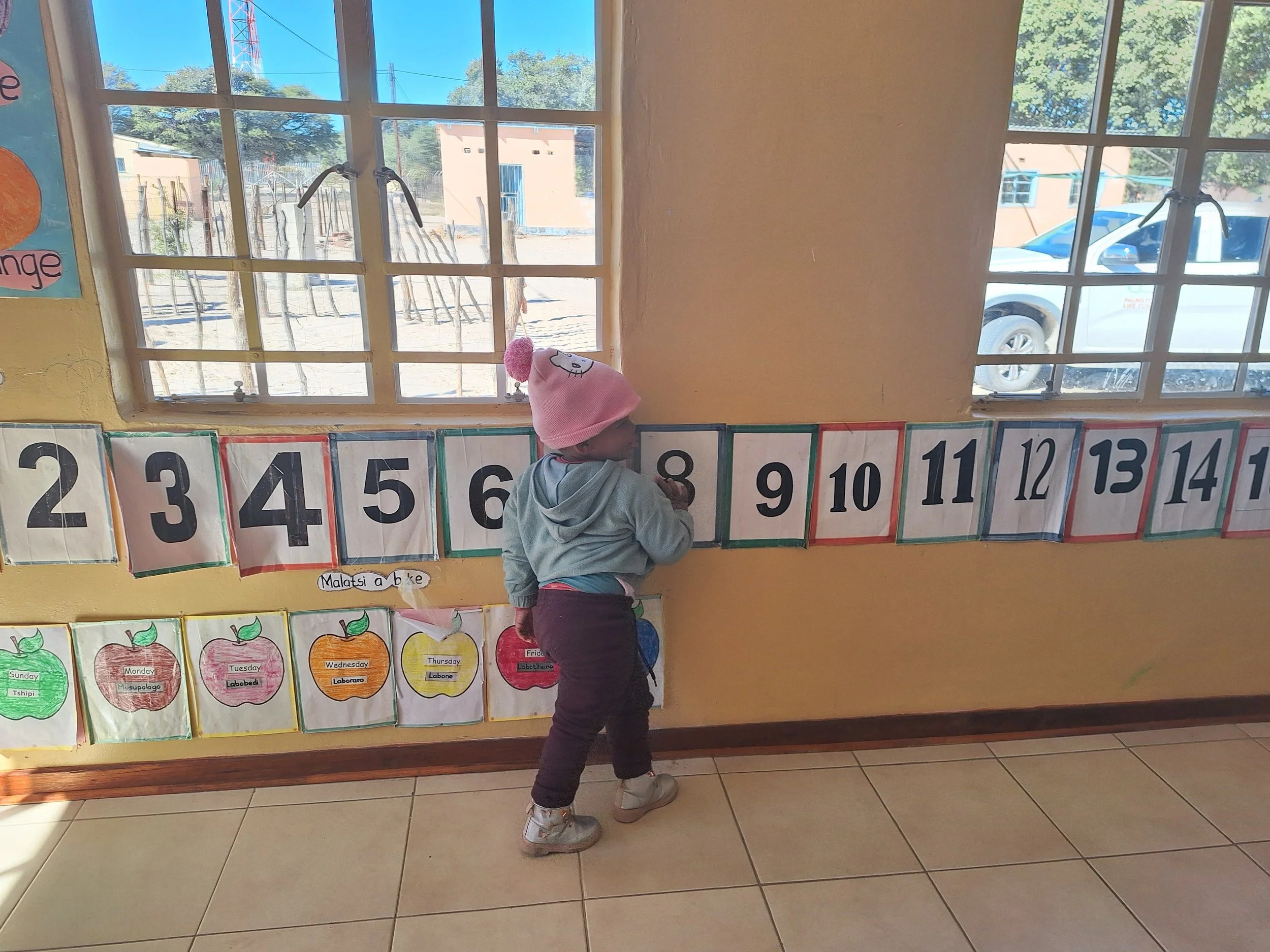
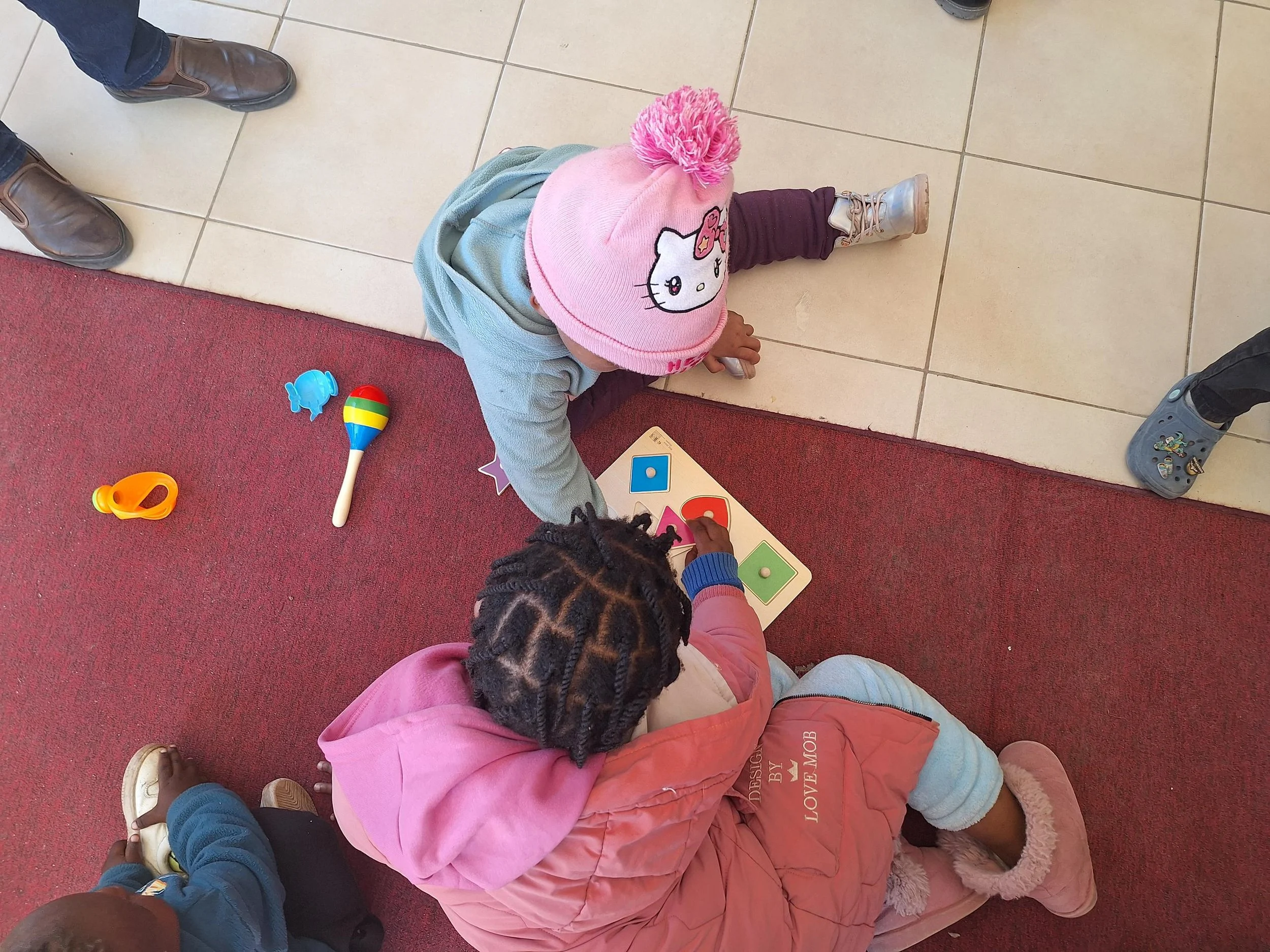
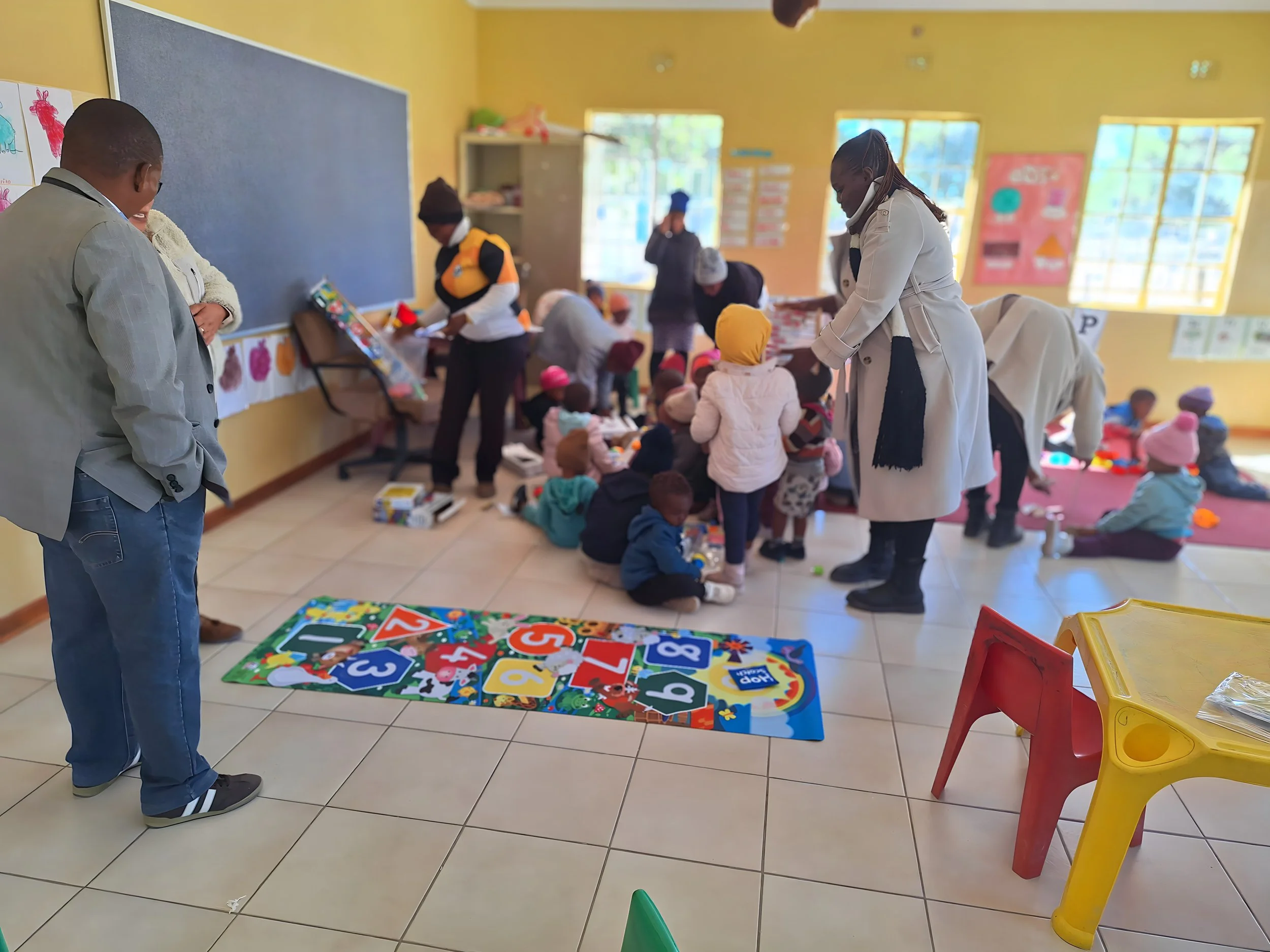
- Support for Playgroups and Hostels
In the Okavango District, PFL improved 11 playgroups, including classrooms, toilets, outdoor kitchens and playgrounds. PFL also made improvements to 2 hostels, which have diverse needs. Improvements included a dining hall, playground, provision of sport equipment and solar geysers.
- Food Security and Agricultural Skills
Hydroponics Units: This pilot strengthened agricultural skills in 6 Districts and included 1 year of hydroponics training with over 130 participants. A private sector nursery facilitated the training and is seeking ways to enable food or income benefits to San people living in Remote Areas from ongoing hydroponics production.
Emergency Food Relief: This is a periodic investment area. Since 2021, PFL provided food relief for over 2,100 marginalized households, supporting over 14,000 people, for an average of 3 months. This is an area where ongoing support is needed, mostly due to drought and climate extremes.
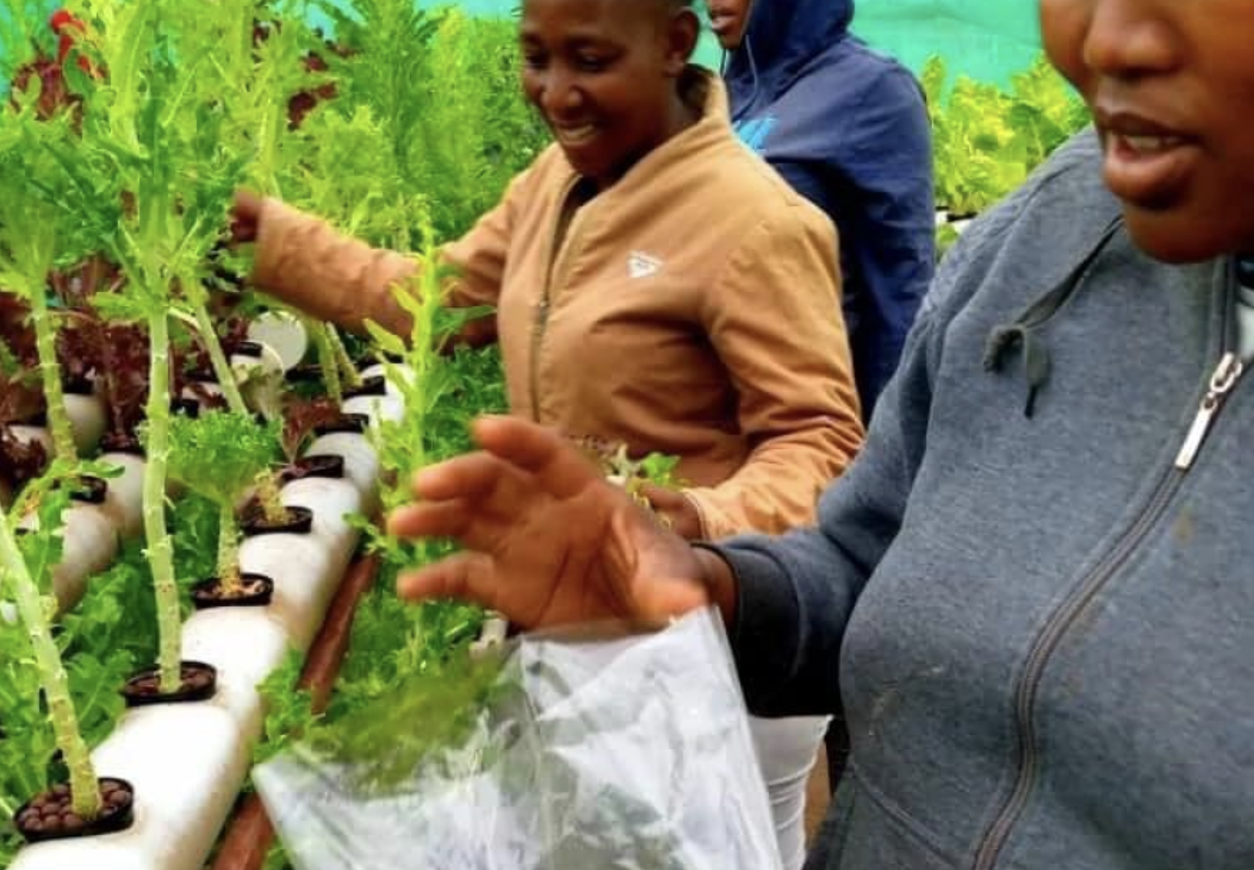
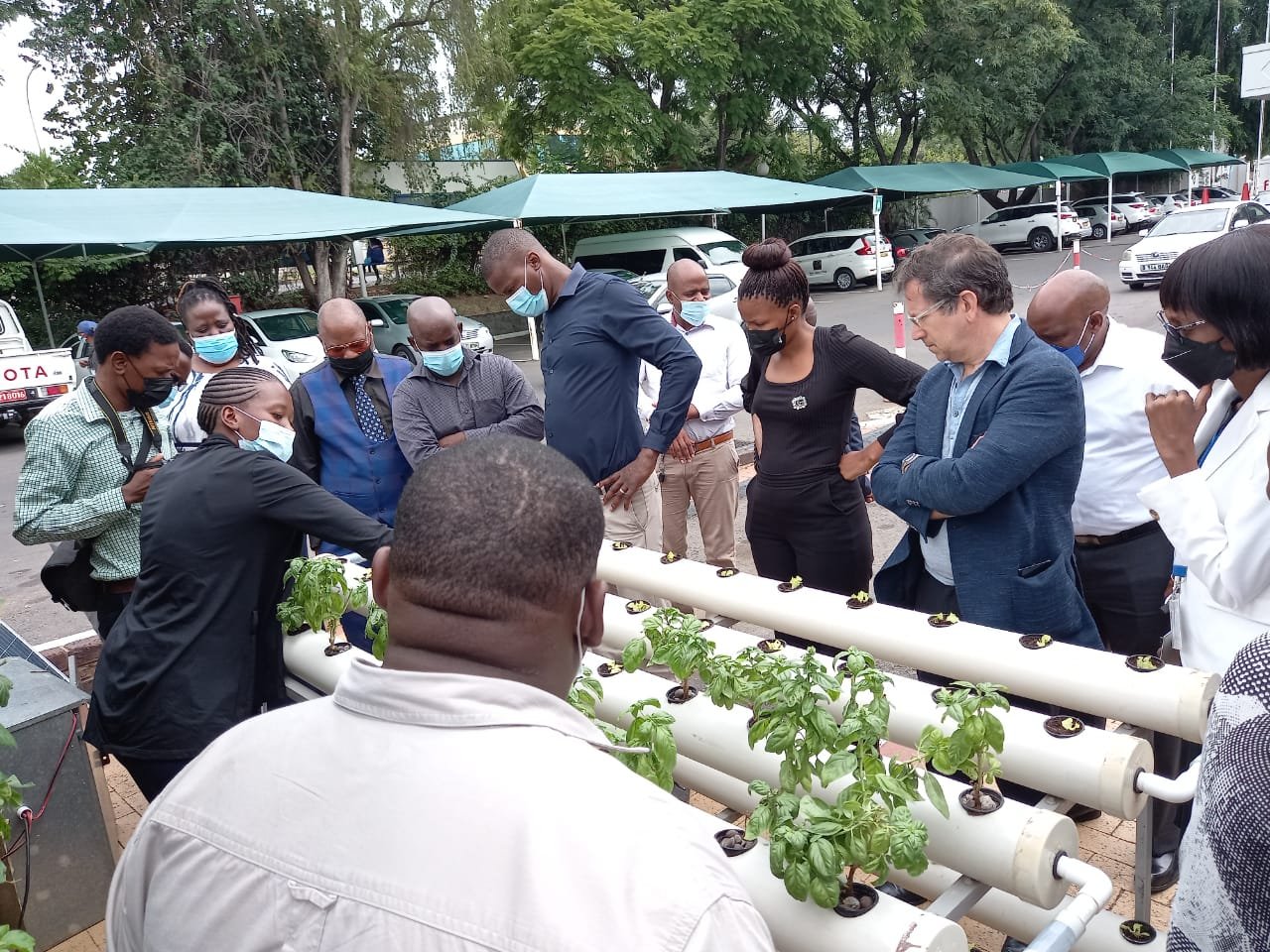


- Cultural Diversity and Preservation
The National Forum on the Preservation of San Languages, Culture and Knowledge included San representatives, academics, NGOs, and government, and it served as an advocacy and planning forum to elevate common issues affecting various San groups.
- Ending Gender-Based Violence and Eliminating Alcohol and Drug Abuse
Ending Gender-Based Violence in Remote Area Communities: This early project engaged over 3,300 people in 4 Remote Areas including men, boys, women and girls. This is an ongoing Social Development Program theme, and PFL includes a focus on gender equity in all projects.
Reducing Alcohol and Drug Abuse: In all PFL projects, participants commit to a no-alcohol and drug policy, which is a pre-condition of participation. Alcohol and drug abuse is a persistent problem in most remote and marginalized areas, which requires further study for effective interventions.
- Scholarship and Vocational Training
Gabane Scholarship Project: In 2022/2023, PFL supported 50 residential Form 3/5 students to re-take coursework and exams with an opportunity to regain entry to mainstream education. This was a pilot, which provided valuable lessons for future scholarship projects. Through this pilot, it became clear that marginalized children’s cumulative educational deficits cannot be solved quickly or with 1 year of top-up education; to tackle this, long-term and systematic support is needed, in partnership with government. Palms for Life now focuses 1-2 year interventions on children who are close to achieving passing grades and stand a good chance for success.
Dajura Scholarship Project: Based on the Gabane pilot, PFL supports residential students while they re-take Form 4/5 coursework, with social support. Improving grades allow students to re-enter mainstream education and improve life opportunities. So far, 60 students have engaged in this residential educational opportunity.
Chobe Holdings 50/50 Partnership Scholarship: This private sector partnership supports batches of 10 youth to complete a 6-month hospitality or tourism course, with a 3-month bush-lodge apprenticeship, followed by employment offers for 70% with Chobe Holdings. This is a small-scale project with very meaningful outcomes, and it is highly replicable. PFL is launching discussions to begin a 3rd cycle of training.
Kitso International College: This scholarship project supports 20 students engaged in a 1-year automotive course. These skills are in high demand in many areas and are likely to lead to income generation.
Introductory Entrepreneurial Training: In partnership with IED, PFL provided training for 28 Mr/Ms RADP pageant participants (this is a Remote Area Development Programme contest for San from Remote Areas), with additional seed funding/entrepreneurial training for 6 of the 28 (goat, cattle, chicken production, as well as fashion design and events management).

